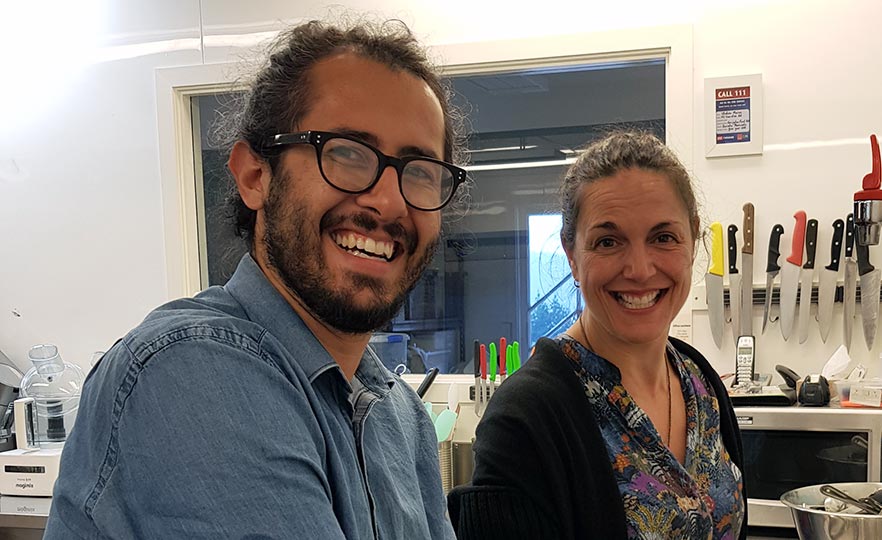
Dr Paulo Henrique Silva Pelicioni (left) and Ms Bryant washing dishes during a marae visit.
What does Parkinson’s look like for Māori and Pacific, and how can we improve the quality of care for those affected?
Thanks to The Michael J. Fox Foundation (MJFF), Otago researchers Professor Leigh Hale and Dr Paulo Henrique Silva Pelicioni, of the , have secured the funding to answer these questions.
The grant, valued at $504,000, is the largest ever sum the MJFF has given the University of Otago, and is from the Foundation’s research efforts to promote diversity, equity and inclusion in Parkinson’s disease research.
The three-year project will help to understand the progression of motor and non-motor symptoms and functional mobility of Parkinson’s disease in Māori and Pacific peoples.
Dr Pelicioni – renowned for his work in balance disorders and fall risk in people with Parkinson’s disease – says: “The aim of the study is to improve the quality of life for Māori and Pacific people living with the disease.”
Dr Pelicioni noticed that ethnicity was often left out of Parkinson’s research in Aotearoa and when it was included, very few participants identified as Māori or Pacific.
“This research is important because if we don’t understand how the disease progresses in Māori and Pacific populations, it will be very hard to provide the right services for them.
“Once we find this out, we can move on to what we can do next.
“As a researcher my role is to do something transformative – how can I facilitate research that is translated from the knowledge I have to helping those living with Parkinson’s disease?”
Consultation with Māori and Pacific peoples has driven the nature of this research, which focuses on culturally-relevant and culturally-benefitting practices.
For this, School of Physiotherapy Professional Practice Fellow Katrina Bryant, whose research focuses on Kaupapa Māori, and Associate Dean Pacific Dr Xaviour Walker from the Otago Medical School, will advise in Māori and Pacific health respectively.
Māori and Pacific student researchers and research assistants have been sought to undertake aspects of the project.
The research involves working with both Māori and Pacific communities, identifying the specific experiences of living with Parkinson’s disease within each community.
Ms Bryant says: “I am happy to be part of this research as it aims to offer a safe platform for voices of Māori and Pasifika people living with Parkinson’s and their whānau, towards the framing of relevant services addressing their needs.”
The research will be conducted using Kaupapa Māori philosophies and the Fonofale model.
“Kaupapa Māori research aims to contribute towards positive change,” Ms Bryant says.
“That means it’s more time consuming but is more meaningful research rather than adding to the plethora of getting an idea but not a solution.
“It doesn’t just end in that identification that Māori aren’t engaging with the health system. You don’t just stop at the negative deficit model. You’re identifying issues and you’re doing something about it.”
Professor Hale says, “We are very excited about successfully attaining a grant from such a prestigious international Parkinson’s research funding body. This shows their commitment to health equity.”







